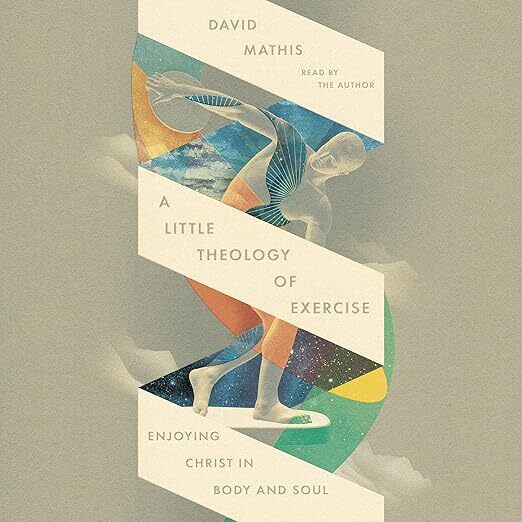A Little Theology of Exercise – David Mathis

David Mathis, A Little Theology of Exercise (Wheaton: Crossway Books, 2025), 109 pp.
Christians rightly reject the ancient heresy of Gnosticism. This diabolical worldview maintains that spirit is good and body is evil. Yet many Christians unwittingly embrace a sort of Gnosticism when they neglect and minimize the body. A sedentary lifestyle is the norm in many churches, where exercise is viewed as a necessary evil.
David Mathis sets the record straight in his helpful and illuminating book, A Little Theology of Exercise. The book is as brief as it is bold. It offers a gracious rebuke to anyone who downplays exercise. But positively, it affirms and encourages Christians to commit to the discipline of exercise. The author writes, “One of the reasons I take exercise seriously, rather than neglecting it, is precisely because of how it serves the joy, strength, and stability of my soul.” He argues that “exercise makes happier humans, and God made humans to be happy – in him.”
Part 1: Move the Body
Mathis establishes the foundation in part one. His aim is to demonstrate that exercise is a distinctly Christian idea. There is an anti-body sentiment that Scripture opposes. 1 Timothy 4:4-5 says, “For everything created by God is good, and nothing is to be rejected if it is received with thanksgiving, for it is made holy by the word of God and prayer.”
Our bodies were formed by God and belong to God. Therefore stewardship of the body is not only essential as a part of Christian discipleship; it plays a key part of what it means to glorify God.
Mathis holds that God is for the body. As such, he commends exercise. As important as maintaining a physically fit body is, spiritual health is our primary concern. This theme is missing in the vast majority of books that commend exercise. Also missing, is the hope of glorification in eternity future. “Our future,” writes the author, “will be forever embodied – beyond our best imagining.” For Christians, “the dishonor of death will give way to the glory of resurrection.” Philippians 3:20-21 says, “But our citizenship is in heaven, and from it we await a Savior, the Lord Jesus Christ, who will transform our lowly body to be like his glorious body, by the power that enables him even to subject all things to himself.”
Part 2: Condition the Soul
The rationale for exercise is presented in part two. Our aim is to glorify God in our bodies. We also commit ourselves to exercise for optimal brain health. The benefits are numerous and the documentation is staggering for anyone with ears to hear.
An important rationale for exercise that Mathis presents involves seeking satisfaction in Christ. “God made our bodies to be healthier and happier as they move … Without bodily movement and exertion, our brains don’t get all the help they need to stay balanced and happy,” writes Mathis.
But the missing link the author provides involves the pursuit of joy in God. “Body stewardship stands or falls on whether it supports the pursuit of joy in God.” This emphasis, one that is missing is most books devoted to exercise, is what sets this resource apart. The focus is spiritual health and God-centered joy!
In the end, physical exercise will help meet the needs of others in love. In other words, when our bodies are in optimal shape, we have the stamina and strength to reach out to others and make a difference in the kingdom of God.
A Little Theology of Exercise should be devoured by Christians. David Matthis puts his finger on a subject that has been neglected for too long in the church. Perhaps one day, we’ll look back and thank him for establishing a new trajectory of health, happiness, and holiness – with the aim of glorifying God and finding our daily joy in him.
I received this book free from the publisher. I was not required to write a positive review.



